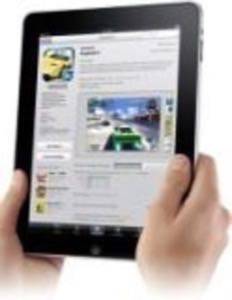Microsoft CEO Steve Balmer will unveil multiple new models of tablet computers aimed to challenge the iPad at the Consumer Electronics Show next month in Las Vegas, according to detailed reporting tonight by Nick Bilton at the New York Times.

Unnamed sources familiar with the tablets told Bilton that they will run the Windows 7 Operating System, include a slide-out physical keyboard, apps written in HTML5 and distributed app distribution, without a curated app store model. Analysts have called this an essential move for months, but this isn’t quite the type of tablet that some expected.
Bilton reports that Microsoft has partnered with Samsung, Dell and other companies to produce tablets that will be announced at CES. Balmer said publicly in July that a new Windows tablet would be available “very soon.”
Market analysts Forrester said last Spring that a Windows 7 Tablet was essential,
“Microsoft needs a partner to produce a successful Windows tablet that competes with the Apple iPad. At stake is nothing less than the future of the operating system (OS): For Microsoft to remain relevant to consumers, it needs to adapt its operating system to new form factors beyond the traditional PC.”
The same Forrester report argued against the “no app store” model that Bilton reports Microsoft has chosen.
A Windows 7 tablet can only compete if Microsoft embraces Curated Computing by providing a simple, streamlined, guided experience for consumers, drawing on the design strengths of other Microsoft products like the Zune HD and the Kin. A Microsoft tablet that synchs with the Xbox 360 — with all the implied benefits, including the Natal [now called Kinect] interface — would be a killer hub for the digital home, enabling back-and-forth streaming of videos and games that one-ups the capabilities of the iPad and makes Microsoft relevant for the next decade.
It’s a Big Market
It’s hardly a surprise that Microsoft is making a big push in the tablet space. Next month will mark the 10 year anniversary of Microsoft’s tablet PC products, which experienced far, far less success than Apple’s iPad. The iPad quickly became the fastest-adopted consumer electronics product in history and remade the entire category. In terms of absolute sales, Microsoft’s Kinect now challenges the iPad for the top consumer electronics device crown, as the company predicted pre-launch that it would.
Can Microsoft challenge the iPad on its own turf? If it can combine productivity and fun with a responsive interface and an active apps ecosystem, it might put up a good fight. That’s a tall order to fill, though. The company’s willingness to work with multiple hardware vendors already sets it apart from the tightly controlled supply chain that produces the very polished iPad.
That strategy has worked, clearly, in the world of PCs – but when the game changer in tablets shines brightest in hardware quality and aesthetics, farming out the hardware seems a riskier strategy.

















